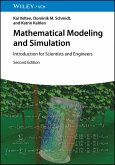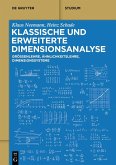This book addresses both multi robot systems and miniaturization to the nanoscale from a unifying point of view, but without leaving aside typical particularities of either. The unifying aspect is based on the concept of information minimization whose precise formulation is the Haken-Levi-principle.
The authors introduce basic concepts of multi-component self-organizing systems such as order parameters (well known from equilibrium and non-equilibrium phase transitions) and the slaving principle (which establishes a link to dynamical systems). Among explicit examples is the docking manoeuvre of two robots in two and three dimensions.
The second part of the book deals with the rather recently arising field of molecular robotics. It is particularly here where nature has become a highly influential teacher for the construction of robots. In living biological cells astounding phenomena occur: there are molecules (proteins) that literally walk on polymer strands and transport loads that are heavier than their carriers, or molecules that, by joint action, contract muscles. The book provides the reader with an insight into these phenomena, especially by a detailed theoretical treatment of the molecular mechanism of muscle contraction.
At the molecular level, for an appropriate approach the use of quantum theory is indispensable. The authors introduce and use it in a form that avoids all the clumsy calculations of wave-functions. They present a model which is based on an elementary version of quantum field theory and allows taking into account the impact of the surrounding on the quantum mechanical activity of a single molecule. By presenting explicit and pedagogical examples, the reader gets acquainted with the appropriate modelling of the walking behaviour of single molecular robots and their collective behaviour.
The further development of multi-robot systems and particularly of molecular robots will require the cooperation of a variety of disciplines. Therefore the book appeals to a wide audience including researchers, instructors, and advanced graduate students.
Hinweis: Dieser Artikel kann nur an eine deutsche Lieferadresse ausgeliefert werden.
The authors introduce basic concepts of multi-component self-organizing systems such as order parameters (well known from equilibrium and non-equilibrium phase transitions) and the slaving principle (which establishes a link to dynamical systems). Among explicit examples is the docking manoeuvre of two robots in two and three dimensions.
The second part of the book deals with the rather recently arising field of molecular robotics. It is particularly here where nature has become a highly influential teacher for the construction of robots. In living biological cells astounding phenomena occur: there are molecules (proteins) that literally walk on polymer strands and transport loads that are heavier than their carriers, or molecules that, by joint action, contract muscles. The book provides the reader with an insight into these phenomena, especially by a detailed theoretical treatment of the molecular mechanism of muscle contraction.
At the molecular level, for an appropriate approach the use of quantum theory is indispensable. The authors introduce and use it in a form that avoids all the clumsy calculations of wave-functions. They present a model which is based on an elementary version of quantum field theory and allows taking into account the impact of the surrounding on the quantum mechanical activity of a single molecule. By presenting explicit and pedagogical examples, the reader gets acquainted with the appropriate modelling of the walking behaviour of single molecular robots and their collective behaviour.
The further development of multi-robot systems and particularly of molecular robots will require the cooperation of a variety of disciplines. Therefore the book appeals to a wide audience including researchers, instructors, and advanced graduate students.
Dieser Download kann aus rechtlichen Gründen nur mit Rechnungsadresse in D ausgeliefert werden.
Hinweis: Dieser Artikel kann nur an eine deutsche Lieferadresse ausgeliefert werden.









